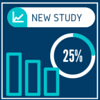Abstract
The efficacy of cognitive-behavioral therapy (CBT) for pediatric obsessive-compulsive disorder (OCD) has been the subject of much study over the past fifteen years. Building on a foundation of case studies and open clinical trials, the literature now contains many methodologically sound studies that have compared full CBT protocols to waitlist controls, pill placebo, psychosocial comparison conditions, active medication, combined treatments, and brief CBT. This review is part of a series commissioned by The Canadian Institute for Obsessive Compulsive Disorders (CIOCD) in an effort to publish in one place what is known about the efficacy of treatments for OCD. A total of fourteen studies were identified; collectively their findings support the efficacy of CBT for youth with OCD. CBT protocols that emphasized either strictly behavioral or cognitive conceptualizations have each been found efficacious relative to waitlist controls. Efforts to enhance CBT’s efficacy and reach have been undertaken. These trials provide guidance regarding next steps to be taken to maximize efficacy and treatment availability. Findings from studies in community clinics suggest that significant treatment benefits can be realized and are not reported only from within academic contexts. These findings bode well for broader dissemination efforts. Recommendations for future research directions are provided.
Franklin, M.E., Kratz, H.E., Freeman, J.B., Ivarsson, T., Heyman, I., Sookman,D.,…March, J. (2015). Cognitive-behavioral therapy for pediatric obsessive-compulsive disorder: Empirical review and clinical recommendations. Psychiatry Research, 227(1), 78-92. doi: 10.1016/j.psychres.2015.02.009
